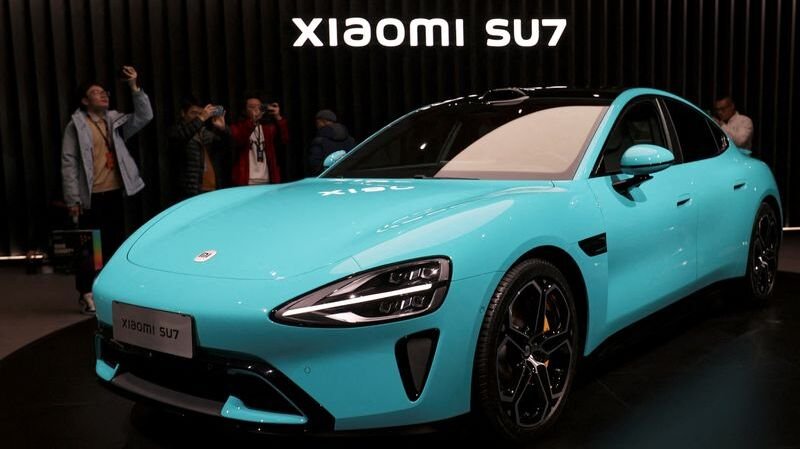Just a few days after the introduction of Xiaomi’s inaugural electric vehicle (EV), potential buyers are facing a substantial wait time of up to six months for their cars to arrive.
Screenshots circulating on Chinese social media platforms reveal the company’s notification to buyers, cautioning them about a potential 27-week delay in delivering the SU7 Max.
Previously, Xiaomi had disclosed that pre-orders surged to 88,898 within just 24 hours of initiating orders last Thursday.
Despite the news request for comment, Xiaomi has not responded promptly.
As the third-largest smartphone seller globally, commanding a market share of roughly 12%, the technology behemoth is entering the electric vehicle market, challenging rivals such as Tesla and BYD in the world’s largest automobile market.
The standard SU7 model is priced at 215,900 yuan ($29,872; £23,663), while the Max variant costs 299,900 yuan. Notably, Tesla’s Model 3 commences at 245,900 yuan in China.
Drawing comparisons with Porsche’s Taycan and Panamera models, the SU7 boasts a minimum range of 700km (435 miles), surpassing the Tesla Model 3’s 567km.
In a bid to bolster the SU7’s appeal, Xiaomi has introduced special editions named the Founder’s Edition, offering complimentary gifts such as refrigerators.
Xiaomi’s CEO, Lei Jun, announced on Weibo that a second round of sales for the Founder’s Edition would commence soon.
The firm anticipates that the shared operating system of the SU7 with its smartphones, laptops, and other gadgets will resonate with its existing customer base.
Xiaomi’s EV venture is produced by a subsidiary of state-owned car manufacturer BAIC Group at a Beijing plant capable of churning out up to 200,000 vehicles annually. This comes amidst a global slowdown in EV sales, prompting price competition.
Tesla, helmed by billionaire Elon Musk, has slashed prices in China by thousands of dollars in recent months, responding to local rivals’ price cuts, including the top-selling EV maker BYD.
Highlighting the hurdles for tech firms venturing into electric vehicles, reports surfaced last month that iPhone maker Apple shelved its EV plans.
BYD, which posted record annual profits last week, noted a slowdown in growth towards the end of last year.
Similarly, Shanghai-based electric car manufacturer Nio revised down its first-quarter delivery forecast amid consumer belt-tightening as China’s economic growth softens.
Tesla is poised to unveil its first-quarter delivery figures for 2024 this week, with Tesla shares plummeting nearly 30% in the first quarter.
Xiaomi has declared its intentions to inject $10bn (£7.9bn) into its automotive division over the next decade.




